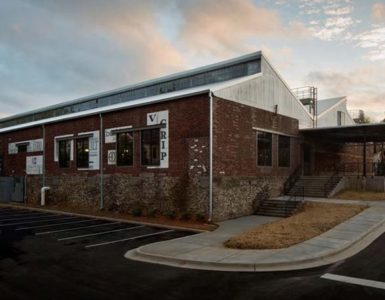If you’re watching the news, you’re seeing a great deal about the devastation on the coast and, particularly, in New Orleans. It’s important that the media focus on scene from desperate places, as it takes this kind of emphasis to motivate people (and even our government) to help.
I’m thankful Clyde and I have been spared what friends south of Jackson are even now enduring. We have power and plenty to eat, and this is not the case for thousands upon thousands of people.
That said, I think most people would be surprised to see what every day life is like, right now, in Jackson, MS, a few hundred miles north of the coast. Here’s an update, designed to give you a day in the life of someone here:
– Morning. We have power, but very, very few people around us do. Friends are camped out on our couch, and we’re happy to be able to give them a cool place to eat and sleep. At the video store, employees, without power at home, are sleeping in the aisles.
– The News. Here’s something you probably don’t think about: you may know more about the scope of the disaster than we do, particularly the extent of the damage in New Orleans and Gulfport. Given the massive power outage, Jacksonians can go days without seeing a television or hearing a radio. Clyde and I saw our first color footage of the coast last night.
– Seeking the Lost. Everyone knows someone with a missing friend or family member. We treasure every bit of news. A friend called today, concerned about family in a city south of here; later in the day, we made a small connection: we heard from an ex-employee who is in that same city. We were able to pass along some news about road conditions and infrastructure. I catch myself eavesdropping on conversations in lines at the grocery store. I talk to strangers. We’re all on alert, hoping to hear that key bit of news that we can share with people who need it.
– Gas. Everyone we met, everywhere we go, is talking about gas. "I heard that the Exxon on Highway 80 had a truck come in. Did you see the line at the Chevron on Ridgewood Road? It’s ten blocks long, and they don’t even have any gas to sell!" And it’s true: people are so desperate for gas, they’re lining up at service stations just in case a service station opens. A neighbor went out at 4:00 a.m. today, and found three- and four-hour lines already in place.
– Sam’s Club. At the Sam’s Club this morning, no one is interested in the big screen t.v.’s and laptop computers. Pallets of ice are available ("We have plenty!" the white-coated employee keeps saying). Bottled water is available, but we can only buy sixteen bottles at once. The frozen food cases are mostly empty. Every scrap of luncheon meat, cheese, and shelf-stable meat is gone.
– Generator mania. With the local power company saying weeks may go by before most residential power is restored, people are buying generators hand over fist. At Sam’s today, every cart but ours seemed to have a $585.00 generator in it. Some people bought more than one. At one point, I got too close to one woman’s buggy, and she quickly moved to come between me and her generator. Really.
– Forraging. At the grocery store, you never know who will have what. At McDade’s yesterday, there were no frozen foods and very few vegetables, but plenty of salad dressing. We lucked out and got one of the last gallon jugs of milk. Just as I left, a truck with ice and huge bottles of water arrived; people got on phones and radios, called friends and neighbors, and bought up the supply in a matter of minutes.
– Mindset. When our power came on last night (we’re lucky — a major substation is about two blocks away), we relaxed. "Hey," we said. "We’ve got power. Things are getting better!" And they are. We can’t escape the nagging feeling, however, that things are going to get much worse — especially if people can’t get gas, bottled water, and food. So we watch and wait, keeping an eye on the news (now that we can get news).
– Plans within Plans. Today, Clyde and I had a conversation about our own Plan B and Plan C. We are already determined to drive as little as possible. We are deliberately avoiding using his car, since it has a full tank. We’re glad we’ve moved to this little condo, which is close enough for us to walk to work. We could also walk to Kroger for groceries. Logistically, we’re in good shape. But we are also talking about what we might do should things rapidly get worse. What happens if people can’t get gas? What happens if people can’t get food? What’s the plan?
– Night. There’s a (mostly ignorned) 8:00 curfew. Outside the narrow strip of light along the I-55 corridor, the city is dark. There are few streetlights. Candles flicker in windows. The sputtering mumur of generators is as pervasive as the sound of crickets would normally be this time of year.
That’s it. That’s life on the edge of the nation’s worst natural disaster. It’s a bizarre mix of safety and insanity. We feel lucky. We feel guilty. We feel angry. We worry about friends south of here.
We wonder, every other minute, what might happen next.


Add comment